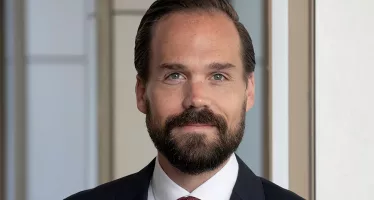Big Banks: Cure or Curse for the Global Economy?
Friday 27 January 2012, CFI with report from the World Economic Forum in Davos, Switzerland with anchor Bloomberg Television
Key Points
- Banking reforms are still a work in progress – there is still a long way to go before the global banking system can be considered robust.
- Big banks are not the only issue – preventing the failure of large numbers of small and regional banks is just as important.
- Regulations should be consistent and cohesive to ensure a level playing field and to prevent regulatory arbitrage.
- Eurozone leaders were called upon to seize the opportunity provided by the ECB’s Long-Term Refinancing Operation (LTRO), which has helped stabilize the markets.
Synopsis
The financial crisis of 2007-2008, the worst since World War II, exposed the fragility of the global

banking system. The world cannot accept a return to this perilous situation.
“What we are trying to do at a national, continental and international level is to reduce the probability of a banking system collapse,” said Jean-Claude Trichet, President of the European Central Bank (2003-2011).
A key focus is large, systematically important banks which proved “too big to fail” during the crisis. However, an orderly unwind of a global, complex financial institution is unrealistic. For banks that cannot be broken up, the focus must instead be on measures such as living wills, resolution mechanisms and the use of contingent capital (recapitalization by converting debt to equity).
“Bank regulation continues to be a work in progress. We want to push forward strongly in 2012,” said Lord Turner, Chairman, Financial Services Authority (FSA), United Kingdom.
The automatic equating of being big with being dangerous was challenged. The failure of a host of small banks is systemically equivalent to the failure of a large bank. “Banking is still a relatively fragmented industry,” said Peter Sands, Group Chief Executive, Standard Chartered, United Kingdom. Indeed, the top 10 global banks control a much smaller proportion of assets compared to the top 10 companies in most other sectors.
Regulators were urged to ensure consistency and coherence of regulatory frameworks to ensure a level playing field. The danger of unintended consequences was highlighted, including a reduction in credit availability for businesses and consumers.
Reform should also go much further than the banks. The origins of the crisis lie in the so-called “shadow banking system” of money market funds, hedge funds and structured investment vehicles. The volume of transactions in the shadow banking system grew dramatically in the decade prior to the crisis, reaching its pinnacle of US$ 10 trillion in the United States by late 2007.
The extraordinary increase in speculation and trading activities was also cited as a risk. Singling out high-frequency trading, the question was posed as to how much value there is in price discovery at the nanosecond level. While deep and liquid markets are clearly important, a cautious stance is warranted when assessing such activities.
However, regulators and macro-prudential authorities cannot stabilize the markets alone. European leaders were called upon to deepen federalization of the Eurozone, including moving to Eurobonds. The European Central Bank was praised for bringing some much-needed calm to markets through its three-year LTRO, announced in December. European leaders now need to seize the opportunity to put in place credible plans and concrete actions to achieve fiscal sustainability.
Offering a contrarian view was Nouriel Roubini, Professor of Economics and International Business, Leonard N. Stern School of Business, New York University, USA; Global Agenda Council on Fiscal Crises. “Little has been done to resolve the underlying issues; in fact, we are worse off now than before the crisis,” he said. What is required is a return to the Glass-Steagall framework, with complete separation of commercial and investment banking, he added.
Source: This article was based on a WEF session which was on the record and open to reporting press with the topic as to the role of banks.
The Contributors included:
Luc Frieden, Minister of Finance of Luxembourg
Guillermo Ortiz, Chairman of the Board of Directors, Banorte, Mexico; Global Agenda Council on the International Monetary System
Nouriel Roubini, Professor of Economics and International Business, Leonard N. Stern School of Business, New York University, USA; Global Agenda Council on Fiscal Crises
Peter Sands, Group Chief Executive, Standard Chartered, United Kingdom; Foundation Board Member
Jean-Claude Trichet, President of the European Central Bank (2003-2011)
Lord Turner, Chairman, Financial Services Authority (FSA), United Kingdom; And was moderated by
Maryam Nemazee, Anchor, Bloomberg Television, United Kingdom
You may have an interest in also reading…
From Red Envelopes to Streaming King: The Netflix Revolution
Netflix’s evolution from a DVD-by-mail service to a global streaming powerhouse is one of the most defining business stories of
The Fed vs the Communist Party
Recent quarters, months, and weeks have seen a remarkable clash between the goals of the US Federal Reserve and Chinese
Berenberg: Strategic Asset Allocation in a Higher Interest Rate Environment
For the first time in many years, interest rates have risen noticeably in 2022 and 2023, and as a result,



















































































